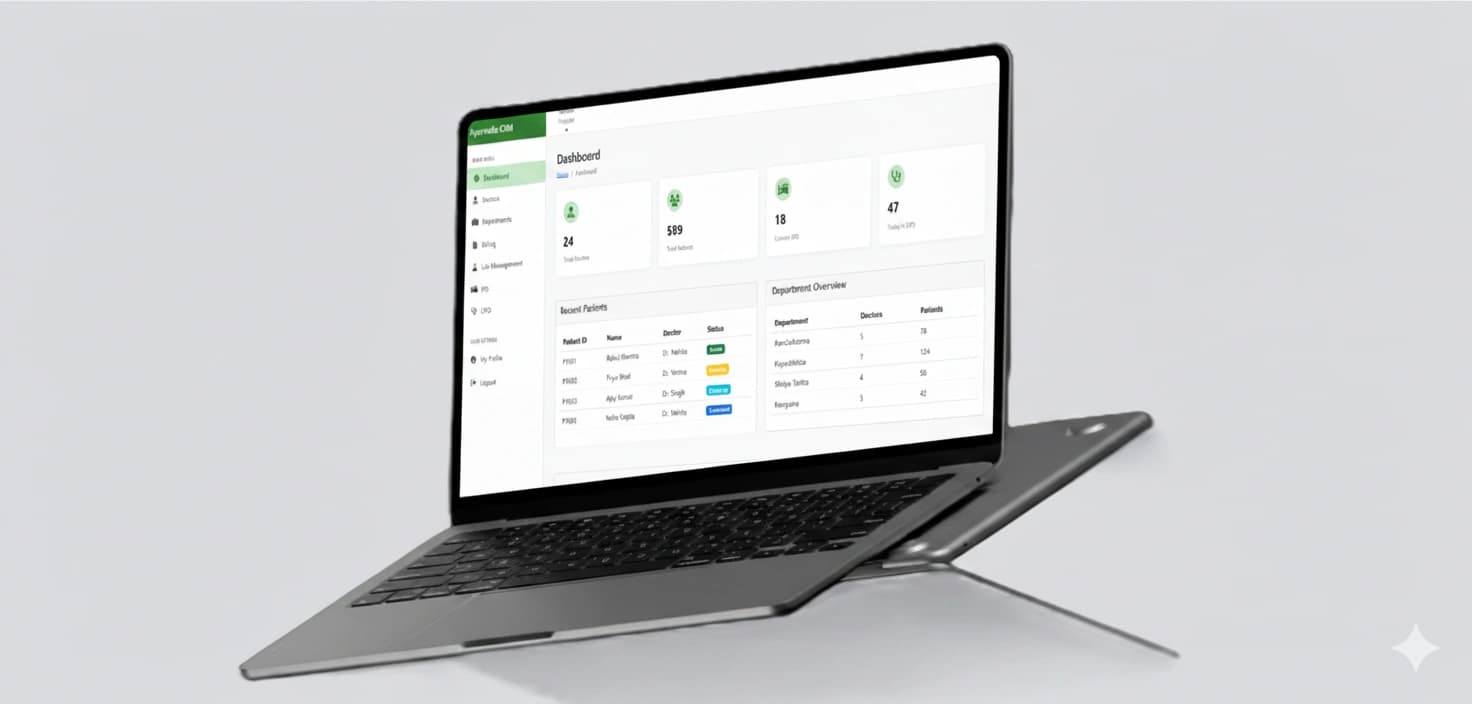Ayurvedic Hospital management System

The Ayurveda Hospital Management System (AHMS) is a comprehensive digital platform specifically designed for Ayurvedic healthcare institutions. Unlike conventional hospital management systems built for allopathic workflows, AHMS addresses the unique operational requirements of traditional Ayurvedic practices.
The system integrates multiple specialized modules including patient registration and tracking, Panchakarma therapy management, dosha-based treatment planning, personalized dietary management through food cards, laboratory test coordination, medicine inventory tracking, and automated billing. Built with Laravel backend and MySQL database, it provides role-based access for Hospital Administrators, Doctors, and Lab Technicians, ensuring secure and efficient departmental coordination.
AHMS bridges the gap between traditional Ayurvedic medicine and modern digital healthcare solutions, supporting both Indian and international patients with multilingual capabilities and comprehensive treatment documentation from admission to discharge.
Tech Stack
Timeline
January 2025 – June 2025